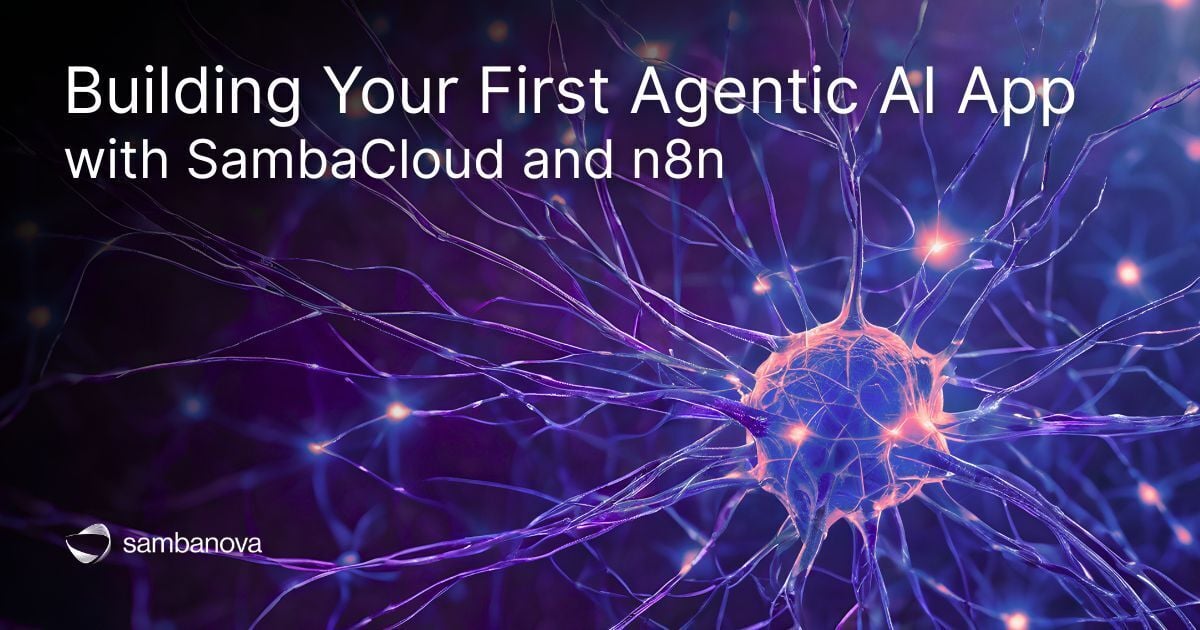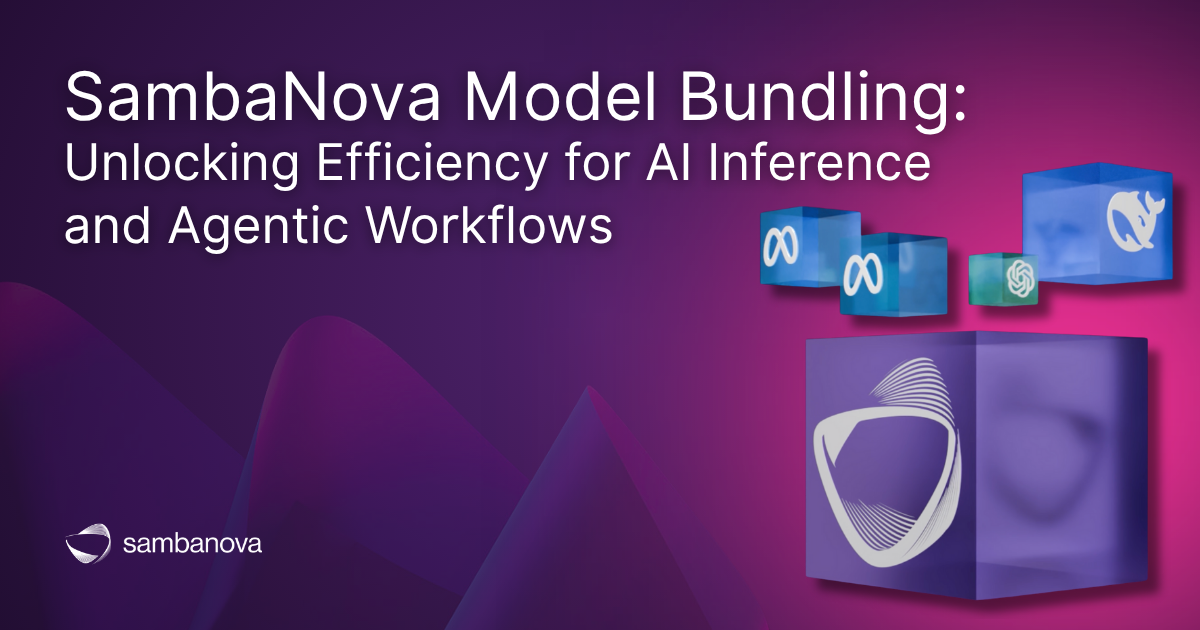Building Australia’s First Inference Cloud: SambaNova & SCX Partner for Sovereign AI


Building Australia’s First Inference Cloud: SambaNova & SCX Partner for Sovereign AI
December 3, 2025
Building Germany’s Premier Sovereign Inference Cloud: SambaNova & Infecom Partner for Scalable AI
.jpg)
.jpg)
Building Germany’s Premier Sovereign Inference Cloud: SambaNova & Infecom Partner for Scalable AI
December 3, 2025
Launching the UK's First Sovereign AI Inference Cloud: SambaNova & Argyll's Renewable Revolution


Launching the UK's First Sovereign AI Inference Cloud: SambaNova & Argyll's Renewable Revolution
December 3, 2025
Your Agents Just Got a Memory Upgrade: ACE Open-Sourced on GitHub


Your Agents Just Got a Memory Upgrade: ACE Open-Sourced on GitHub
November 19, 2025
Are LLMs Truly Solving Software Problems — or Are Agents Doing It?


Are LLMs Truly Solving Software Problems — or Are Agents Doing It?
November 14, 2025
Understanding MCP: The Model Context Protocol Explained


Understanding MCP: The Model Context Protocol Explained
November 13, 2025
Intelligence per Joule: The New Metric for True AI Value and Efficiency
.png)
.png)
Intelligence per Joule: The New Metric for True AI Value and Efficiency
November 12, 2025
Building Your First Agentic AI App with SambaCloud and n8n


Building Your First Agentic AI App with SambaCloud and n8n
November 11, 2025
Understanding the Use of Large Language Models as a Judge


Understanding the Use of Large Language Models as a Judge
November 7, 2025
SambaNova Model Bundling: Unlocking Efficiency for AI Inference and Agentic Workflows


SambaNova Model Bundling: Unlocking Efficiency for AI Inference and Agentic Workflows
November 4, 2025
Redefining AI Infrastructure in a Power-Constrained World


Redefining AI Infrastructure in a Power-Constrained World
October 19, 2025
From Insight to Action with SambaNova Agents
.png)
.png)
From Insight to Action with SambaNova Agents
October 16, 2025
SambaNova and CrewAI Partner to Deliver Agentic AI at Scale on CrewAI AMP


SambaNova and CrewAI Partner to Deliver Agentic AI at Scale on CrewAI AMP
October 14, 2025
Introducing the SambaNova SDK


Introducing the SambaNova SDK
October 9, 2025
Start Building with The Fastest DeepSeek-V3.1-Terminus


Start Building with The Fastest DeepSeek-V3.1-Terminus
September 30, 2025
Unlock Enterprise-Grade Security with Open-Source AI on SambaNova


Unlock Enterprise-Grade Security with Open-Source AI on SambaNova
September 23, 2025
SambaNova Named to FORTUNE Future 50 List for Second Consecutive Year


SambaNova Named to FORTUNE Future 50 List for Second Consecutive Year
September 16, 2025
Start Building with Lightning-Fast GPT-OSS 120B on SambaCloud


Start Building with Lightning-Fast GPT-OSS 120B on SambaCloud
September 8, 2025
DeepSeek-V3.1 Is Live on SambaCloud


DeepSeek-V3.1 Is Live on SambaCloud
August 25, 2025
Supercharging AI Agents with Function Calling on DeepSeek!
%20Ideation.jpeg)
%20Ideation.jpeg)
Supercharging AI Agents with Function Calling on DeepSeek!
August 19, 2025
SambaNova 2.0: Build with Relentless Intelligence


SambaNova 2.0: Build with Relentless Intelligence
July 8, 2025
Introducing SambaManaged: A Turnkey Path to AI for Data Centers


Introducing SambaManaged: A Turnkey Path to AI for Data Centers
July 7, 2025
DeepSeek R1-0528 is Live on SambaNova Cloud


DeepSeek R1-0528 is Live on SambaNova Cloud
June 4, 2025
Introducing Whisper Large-V3 to SambaNova Cloud


Introducing Whisper Large-V3 to SambaNova Cloud
May 14, 2025